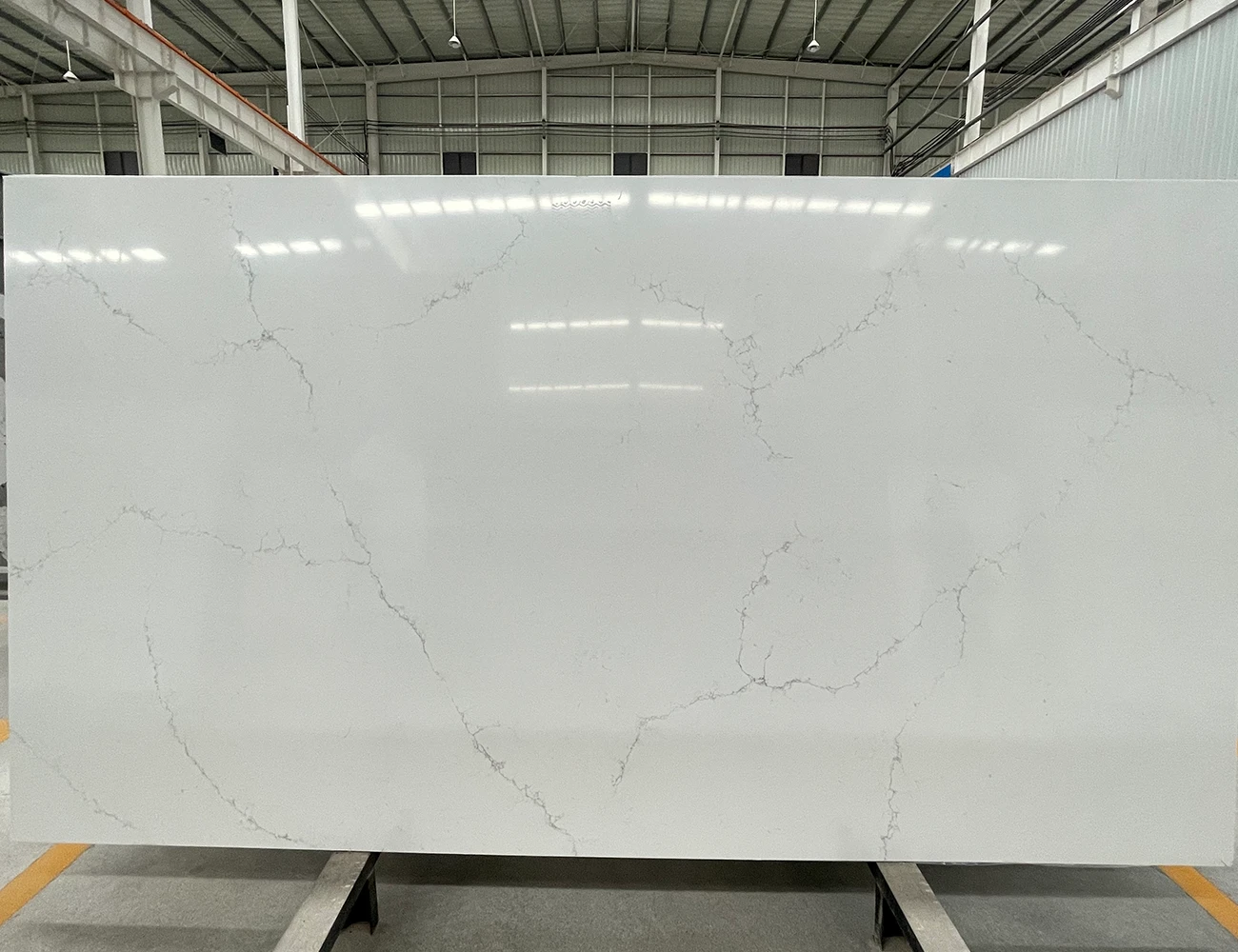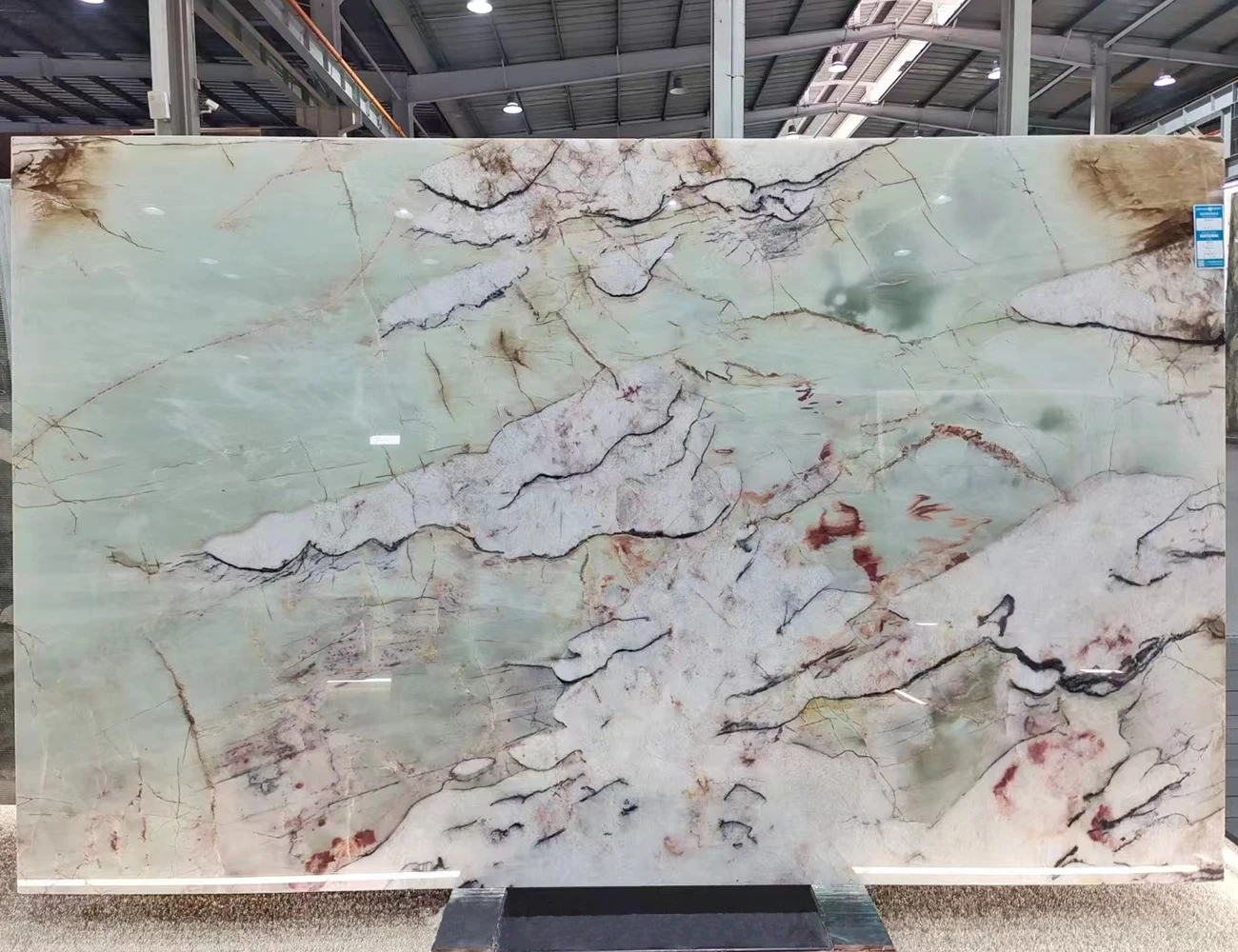It’s normal to get mixed up between quartz and quartzite material. They are both popular for countertops and do have similar names after all. The truth is, though, they are not as similar as would first seem.
Quartz, engineered stone, is what you might call a high-tech countertop material. Natural quartz crystals mixed with synthetic resins create it. Pretty amazing is the great range of colours and patterns this unique mix offers for choice.
Quartzite is quite different now. Made deep within the Earth, it is 100% natural and results from the transformation process involving high pressure and heat between sandstone and quartz. Many people find great beauty in quartzite from this natural journey.
So, the bottom line is that these two materials are quite different. When you’re choosing the ideal countertop material for your next house project, knowing these differences becomes absolutely crucial. Your style, budget, and needs from your countertops will all determine it. Thus, keep these variations in mind and you will be able to decide correctly!

What Is Quartz?
Quartz countertops are a remarkable fusion of nature and human ingenuity. Natural quartzite stone mixed with synthetic materials including resins, stone chips, and colours creates them. Quartz counters have their unusual qualities because of their composition. Unlike natural stones like granite, marble, or quartzite, quartz slabs are painstakingly created using a sophisticated manufacturing technique rather than mined or quarried from the earth.
The process of engineering quartz countertops involves carefully selecting high-quality natural quartz crystals and combining them with resins to bind the material together. Stone chips and pigments are also included to produce an amazing range of hues and designs that fit a wide spectrum of design tastes. The end effect is a strong and flexible surface that not only copies the beauty of actual stone but also provides improved practical characteristics including stain resistance and low maintenance.
Learn More About Quartz Countertops: Find out what’s great about them, their advantages, drawbacks, and how they’re used. Visit our Quartz Countertops page to learn more.
What Is Quartzite?
On the flip side, let’s talk about quartzite, which is a whole different ballgame. Natural stones include quartzite. Nature is performing her magic trick here. It develops naturally when quartz-rich rocks such as sandstone and chert get compressed and cooked far down on Earth. The great heat and pressure change these common rocks into something quite remarkable.
The result? Quartzite slabs that are not just durable but also stunningly beautiful. Their almost glassy, shiny look is rather similar to marble. Quartzite offers the possibility of having a countertop not only of strength but also of artistic appeal.
Many homes fall in love with its distinctive and sophisticated atmosphere for obvious reason. See our Quartzite Countertops page for further information.
Quartzite Vs Quartz – Key Differences
1.Composition: Their compositions really differ fundamentally. Whereas quartz is made of synthetic materials in addition to natural quartzite, which consists of 90–99% pure quartz, both have a distinctive look.
2.Appearance: Quartzite tends to have a more limited color palette, often appearing in light gray or white with hints of green, red, or blue, occasionally featuring veining. On the other hand, thanks to its synthetic character, which gives a wider spectrum of colours and patterns, quartz is quite flexible for many countertop designs.
3.Hardness & Durability: Quartz leads here as well. Unlike natural quartzite stone, which is porous and requires regular sealing to keep its strength and gloss over time, this non-porous, harder stone is more resistant to damage.
4.Pricing: Quartzite is a natural stone and tends to be on the pricier side. With extra costs for backup materials should a break occur, the cost can run from $80 to $200 per square foot. On the other hand, quartz is a less expensive choice usually costing between $60 and $150 per square foot and hardly gets damaged during installation.
5.Maintenance & Care: Quartzite, being less dense, stains more easily, especially in high-traffic areas like kitchens. To stop damage, it must be routinely sealed. Conversely, quartz is quite stain-resistant and requires little care.
6.Heat Resistance: When it comes to heat resistance, quartzite has the upper hand. Resin-containing quartz can sustain damage from hot cookware beginning at roughly 300 degrees Fahrenheit. By contrast, quartzite can resist direct touch with hot pots and pans and is less prone to heat damage.
7.Environmental Impact: Environmentally, quartz is regarded as more friendly. Made of non-toxic components, it mostly consists of the plenty of naturally occurring stone. Moreover recyclable and with a longer lifespan are quartz countertops. Though more natural, quartzite has a shorter lifetime than quartz and requires a lot of energy for extraction.
8.Ease of Installation: Quartzite’s lower density and less durability make installing more difficult. Installation runs a danger of breakage. By contrast, quartz is less prone to break during installation because of its synthetic composition and higher density.

Making Your Choice
The decision between quartzite vs quartz ultimately depends on your preferences and budget. Should you have more money and prefer a natural look, the first one could be the best choice. On the other hand, if your budget is more limited, you want a broad spectrum of colours, want simple maintenance, and want to be ecologically conscious—then quartz is the best fit for you.
Whether you opt for the natural beauty of quartzite or the versatility of quartz, the choice is yours to make. Whichever you decide upon, you will be sure your house has a gorgeous and long countertop.






